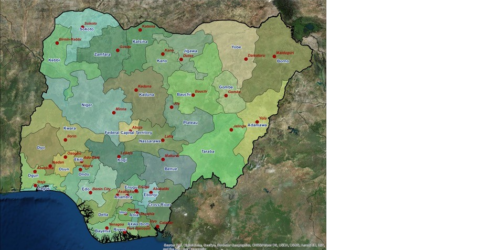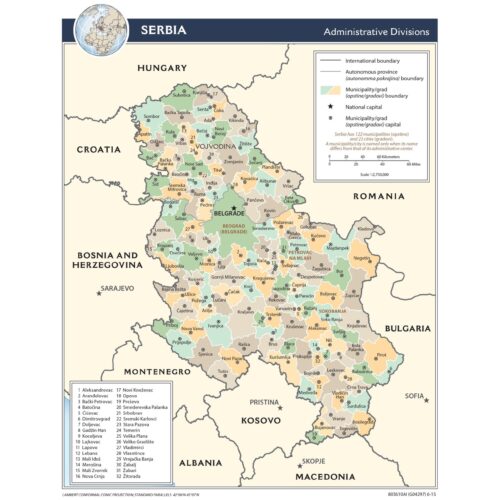
The country overview blog post series provides a brief background on each of the Reintegrate data collection countries.
Nigeria, referred to as the Giant of Africa is a country in West Africa with a population of almost 220 million, 36 states, and the Federal Capital Territory.It shares borders with four countries namely, Cameroon, Chad, Niger Republic, and the Republic of Benin (World Atlas, 2023).
Nigeria, which is also Africa’s largest economy, grew at a consistent 6-8% per annum (Forbes 2016) until 2015 when oil prices collapsed and it had its first recession in 25 years. Since then, the economic growth has been stunted, and while there is some progress, the human capital development remains weak with Nigeria having the 7th lowest human capital index globally; the Boko Haram insurgency in the North only reinforces this (World Bank, 2019; 2023). These statistics partially allude to why there is such a high number of Nigerians leaving the country in their search for a better life.
Some of these migrants successfully reach their country of destination, while others are stranded in transit countries like Niger and Libya. For those who reach the country of destination, permission to remain in the country legally is not always possible to attain either because they do not meet the necessary requirements for legalization or for other reasons leaving them irregular. Therefore, they may end up being deported, or eventually “choosing” to return home via an assisted return program such as the Assisted Voluntary Return and Reintegration (AVRR) program being offered by the International Organization for Migration (IOM) or other similar programs.
Those who are stranded in transit countries often try to continue the journey onwards to their country of destination. However, when that is not possible and life in the transit country becomes intolerable due to economic poverty or migrants’ experiences of physical and sexual violence (Adeyinka, Lietaert, & Derluyn, 2023; Esposito et al, 2019).
In the Reintegrate Project, we will look at how those return migrants are governed upon their return to Nigeria, who the key actors are, and how/whether the reintegration governance impacts their (successful) reintegration.
References
Adeyinka, S., Lietaert, I., & Derluyn, I. (2023a). It happened in the desert, in Libya and in Italy: physical and sexual violence experienced by female, Nigerian victims of trafficking in I taly. International Journal of Environmental Research and Public Health, 20(5), 4309.
Esposito, F.; Ornelas, J.; Scirocchi, S.; Arcidiacono, C. Voices from the Inside: Lived Experiences of Women Confined in a Detention Center. Signs J. Women Cult. Soc. 2019, 44, 403–431.
International Labour Organization (2022). Global estimates of modern slavery: forced labour and forced marriage. ILO, available at: www.ilo.org/wcmsp5/groups/public/–-ed_norm/–-ipec/documents/publication/ wcms_854733.pdf
PWC (2017). Nigeria’s economic recovery. Defining the path for economic growth. PricewaterhouseCoopers Limited. https://www.pwc.com/ng/en/assets/pdf/nigerias-economic-recovery.pdf
United Nations Department of Economic and Social Affairs (2020). International Migrant Stock. UN DESA, available at https://www.un.org/development/desa/pd/content/international-migrant-stock
United Nations High Commissioner for Refugees (2016). Refugees’ and migrants’ see arrivals in Europe. UNHCR. Retrieved from https://reliefweb.int/report/greece/refugees-
migrants-sea-arrivals-europe-monthly-data-update-december-2016
United States Department of State (2022). Trafficking in Persons Report- United States of America, July 2022, available at https://www.state.gov/wp-content/uploads/2022/10/20221020-2022-TIP-Report.pdf
Vermeulen, M., Amzat, A., & Zandonini, G. (2019). Europe spends billions stopping migration. Good luck figuring out where the money actually goes. The correspondent. https://thecorrespondent.com/154/europe-spends-billions-stopping-migration-good-luck-figuring-out-where-the-money-actually-goes/171168048128-fac42704
World Bank (2023). The World Bank in Nigeria https://www.worldbank.org/en/country/nigeria/overview
